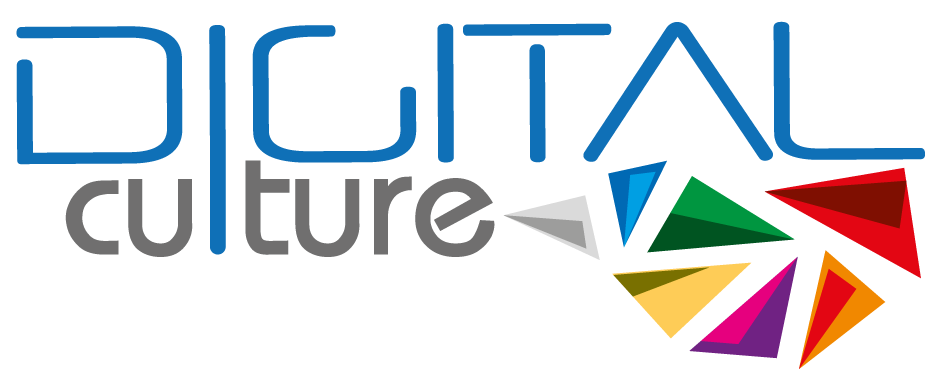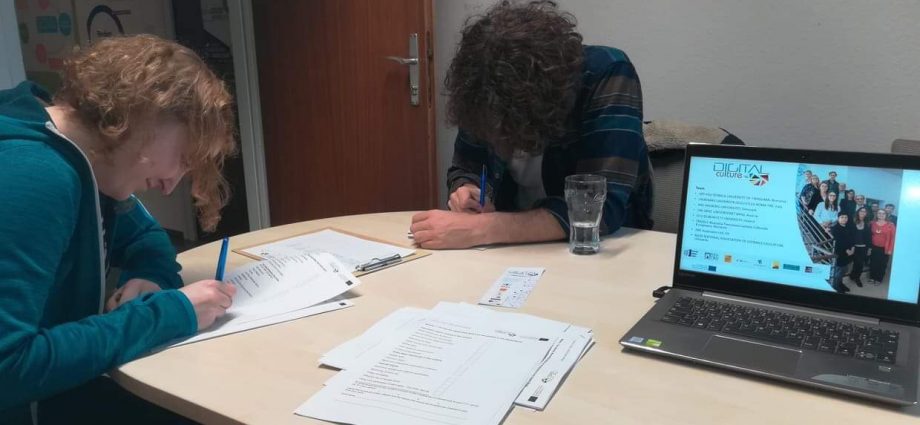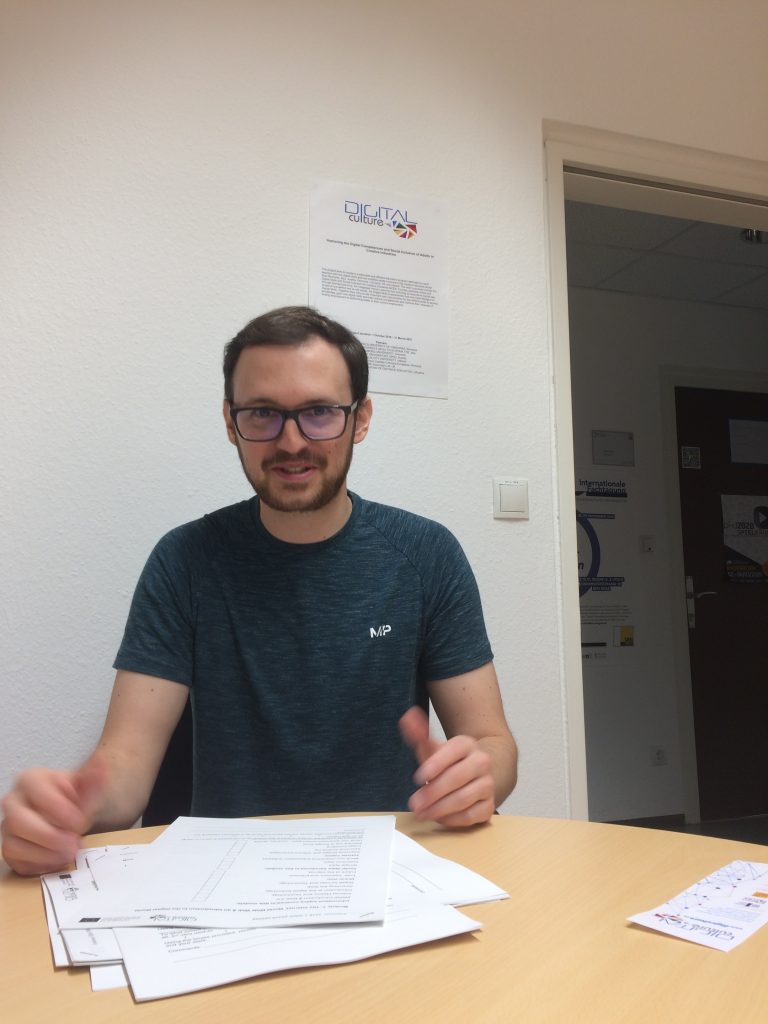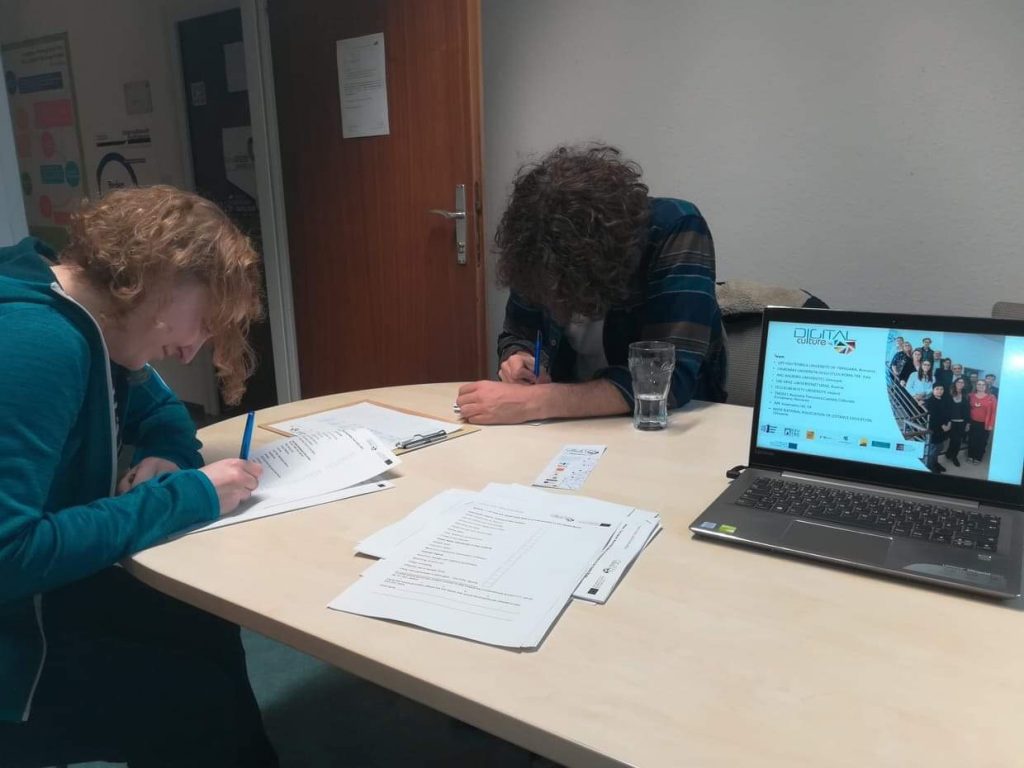The Multiplier event in Austria took place in Graz on the 13th November 2019. The event was held at the University of Graz, in the Centre for Information Modelling – Austrian Centre for Digital Humanities and it focused on presenting the modules of the DigiCulture MOOC and discussing them with the participants.
The event was advertised through mailing-lists for Creative Industries professionals in Styria, and further social media groups for cultural and creative industries professionals in the region.
Participants were equally divided between genders and had an average/high experience in working with digital technologies in their everyday work. They came from the fields of graphic design, music, museums and cultural heritage organisations, marketing, dancing and performing arts. The average age of the participants was early 30s.
Chiara Zuanni and Walter Scholger introduced the DigiCulture project.
Dr. Beatriz Garcia, from the University of Liverpool, member of the European Capital of Culture Selection Committee and expert member at the Culture & Olympic Heritage Commission was the keynote speaker of the event. She gave a presentation with the title “The impact of major cultural events on a city”.
After that Dr. Chiara Zuanni presented the Digital skills and measuring digital impact in creative industries, as they resulted from the project activities developed until now. The MOOC platform (O2 of the DigiCulture project) and the proposed syllabus of the MOOC course (O3 of the DigiCulture project) have been also presented in details to the participants by Dr. Diana Andone, project coordinator, allowing further discussions and comments on the subject. Franz Dörfler led the collection of comments about the different course modules. Participants worked individually on giving feedback on the topics, tools, and activities suggested for each module.
The results of the surveys showed that the modules on social media for culture and digital audiences and analytics were those that were considered most useful by the participants, while the modules on digital curation and on augmented and virtual reality were considered the least useful. As emerging from the discussion, it seems that these choices were justified by the professional profiles of the participants, who use digital media mainly to promote their own work and hence considered social media marketing and the understanding of analytics as crucial to the development of their client base. Conversely, digital curation and immersive technologies were not directly relevant to this marketing scope, and thus were considered less useful.
Another important subject presented by Dr. Diana Andone to the participants (in order to see what is their opinion on that) was on how to raise awareness E-assessment for digital skills in adult education for Creative Industries, on using Open Digital Badges and how this can be implemented in MOOCs (O4 of the DigiCulture project). Most of the interest has been raised on the implementation of Open Badges for recognizing digital competences acquired during the course, mainly from the participation of new technologies experts, creative industries and universities representatives.
Overall, all participants were interested in taking a course such as that designed by the DigiCulture project, especially in order to better understand how to promote their work online, also in compliance to legal regulations.
The number of participants to the workshop was 10 external participants (not including the keynote speaker) from different organisations from Graz and from the Styria region: Joanneum Universalmuseum, small art design companies, online art marketing company, one musician and 2 professors from the University of Vienna and Technical University Graz, respectively, mainly interested in how Open Badges can be implemented in the MOOC courses.




